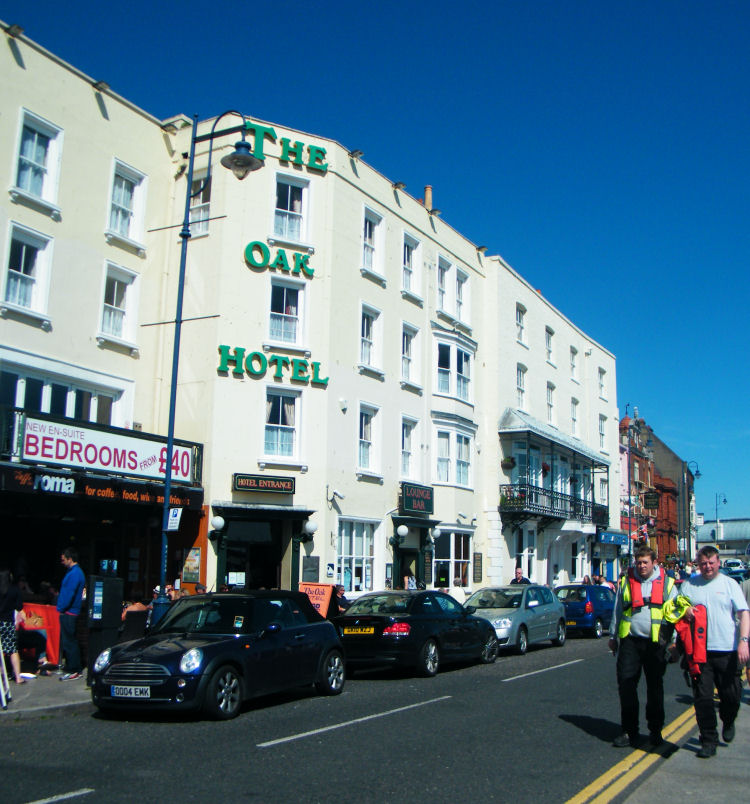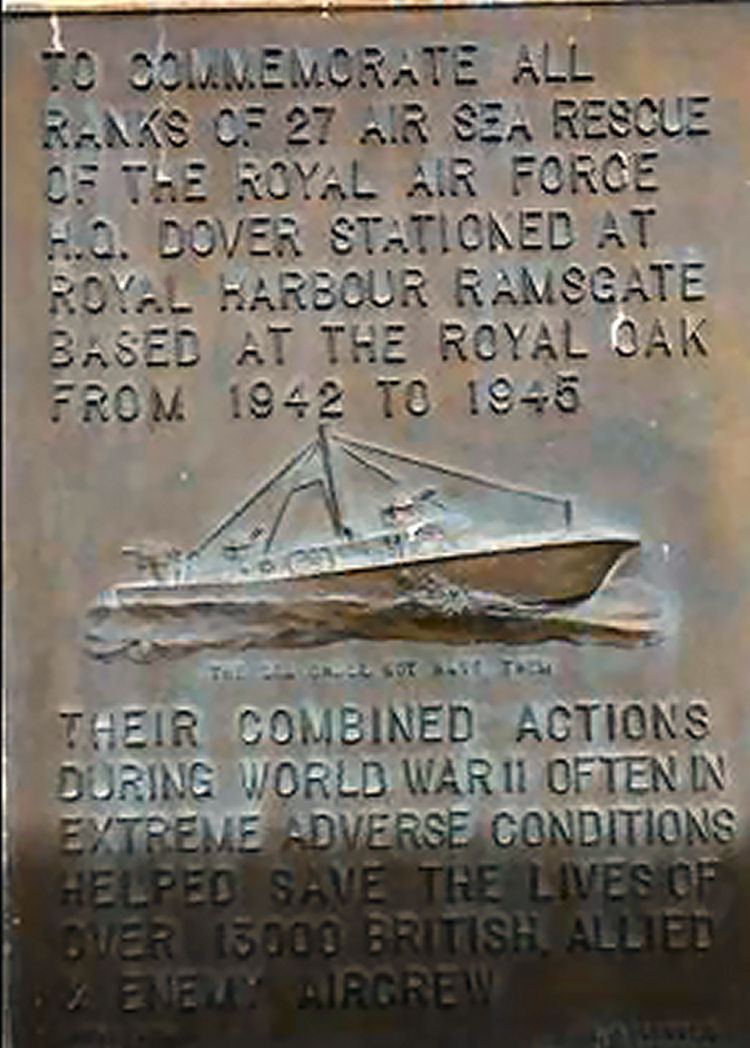|
From the Kentish Gazette, 18 February 1840.
Ramsgate.
(The following was in response to Queen Victoria's recent marriage to
Prince Albert on 10 February 1840. Paul Skelton.)
The principal tradesmen suspended business and closed their shops, that
all classes might join in the festive hilarity. About 200 children were
feasted at the National School Rooms; 150 of the Teetotal Society took
tea at Hubbard’s Rooms, and discussed the subject of the joys of
matrimony; and 56 tradesmen sat down to a sumptuous dinner at Corbin's
"Royal Oak Inn," served up in capital style, and worthy of the
auspicious occasion. About 120 of the inhabitants and their daughters
partook of a supper at Hiscock’s "Royal Hotel," after which they joined
in the "graceful dance." Nearly 100 persons of the principal resident
nobility and gentry were similarly engaged at Bear’s "Albion Hotel,"
keeping up the ball till near daylight. The poor at the Union were
regaled with roastbeef, plum pudding, and beer, so that nearly the whole
of the inhabitants did honour to the illustrious bride and bridegroom.
|
|
From the Kentish Gazette, 1 February 1842.
RAMSGATE.
On Tuesday some of the principal tradesmen of Ramsgate, joined by a few
friends from St. Lawrence, dined at the "Royal Oak Inn," to commemorate
the young Prince’s christening. The chair was taken by our old townsman,
Mr. Wildish, supported by T. Mayhew, Esq., Mr. Hutchinson, Mr. Edwards,
&c. &c. The day passed with hilarity and great Spirit until eight
o’clock, when the party adjourned to the Concert Room to meet a large
body of their fellow townsmen. The chair was then taken by Mr. Sackett
(the first time of his presiding since he has had the honour of becoming
our Deputy), the vice by Mr. Wildish, and the evening passed off with
great glee and good humour. Among those present we noticed the Officers
of Customs, Captain Martin and the Officers of the Royal Harbour.
|
|
Thanet Advertiser, Saturday 9 October 1886.
A "PARTING BLOW."
The following' letter had been received;
Corbin’s Royal Oak Hotel, Ramsgate, September 27th, 1866.
Dear Sirs, — At the beginning of this season (if it can be called by
that name) I wrote to the Mayor asking him to endeavour to relieve us of
some of the nuisances existing in the thoroughfare (the principal use)
and seriously affecting this business. I was led to believe that he
sympathised with us, and certainly looked forward to a little
consideration being shewn; but I find that I was mistaken, for, whether
with fixed intent or not, most certainly every detail of the awful
nuisances has been aggravated; there have been more wagonettes,
carriages, barrows of all sorts, a great deal more maddening noise for
people who come down for quirt; more blasting of horns, one or two more
fights in the day-time than usual, and a few more nightly ones at the
pier gates between 11 and 12 o'clock: more stench, urine, etc., from the
cab stand, which is very properly placed no that by the fall of the
roadway all liquid must gently trickle slowly across the thoroughfare;
more coal, chalk, sand, and dirt has been shovelled in and out of
vessels on the busiest excursion days, when the place required the most
keeping clear and the greatest care to avoid accidents; more confusion;
more complaints about these things by my own visitors; and, lastly,
which no doubt all the Council will be pleased to hear, more people have
left the hotel in consequence (the names of whom have been given me and
the reason stated) this season.
After such treatment, sirs, it is not surprising that our rulers are
received with scowls instead of smiles. The most cruel wrong ever
inflicted on a body of ratepayers was the refusal to pave this
thoroughfare with wood, or some other noiseless paving, and for which we
have to thank the Mayor principally. Unless this is done soon, it is
impossible for this hotel to continue the business. Why we, who have
paid so much to the Town during fifty years, should be so wilfully
wronged and refused so small a matter, is more than I or any of my
friends can understand. I have just received a peremptory note from Mr.
Dunt, I suppose intended as a threat to take proceedings if not paid,
amounting to £30 paid this year only, and I ask for what? Simply
nothing; not even common decency or ordinary treatment of a grievance. I
should add that a poor old man, at 15s. per week, has been vainly trying
to keep some of the filth under during the season; beyond this nothing
whatever has been done.
Thanking yon, the Mayor and Council, for your kind consideration to us,
I am, Sirs yours faithfully,
Henry E. Corbin.
P.S. — Will you kindly endeavour to get the gas coal discharged opposite
this hotel during the winter? It would save the town some expense and be
more satisfactory to the contractor.
The Major said be heard soma few days ago that he was going to have a
parting blow from an inhabitant, of that part of Harbour-street, for
refusing to support the wood-pavement scheme, but if it was again
brought up he should again be opposed to it. (Hear, hear.) His worship
went on to repeat arguments he had previously used against wood pavement
and the taking over of the Town Quay; and said with regard to the
nuisances complained of, he had put himself in communication with Mr.
Buss and begged him to do all he could to abate or lessen them. He knew
the inhabitants were much annoyed, but the Quay was the only bit of
front they had, and accommodation must be provided for the waggonettes,
etc. He must say he was not surprised at Mr. Corbin's irritability of
temper.
Councillor Pearce said something ought to be done. The noise of passing
vehicles was dreadful, and visitors would not stop.
The Major said some first-class London hotels were situated in street
paved similarly to the Quay.
Councillor Hobbs said he was walking down that part of Harbour-street on
Sunday morning, when he saw mats being beaten outside one of the hotels.
The foot passengers could not pass for clouds of dust. He did not think
that was right.
Councillor Woolcott thought that the Quay should be put in proper repair
by the owners, the same as other private roads were.
Councillor Emett said the great nuisance on the Quay was caused by the
unloading of the colliers, and until they were shifted the inhabitants
would never be free from annoyance. The Quay this year however had never
been kept cleaner, but the mat-beating nuisance complained of by Mr.
Hobbs was very bad.
The Mayor said that mats could be beaten before eight o'clock of a
morning.
The discussion was continued by Aldermen Green, Pygott, and Upright, and
then the matter dropped, no resolution being moved upon it.
|

